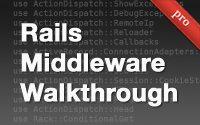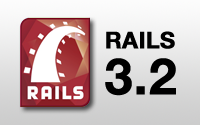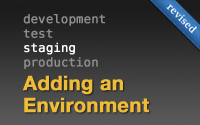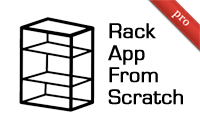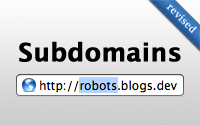Categories
- Active Record
- Active Resource
- Active Support
- Administration
- Ajax
- APIs
- Authentication
- Authorization
- Background Jobs
- Caching
- Code Walkthrough
- Controllers
- Debugging
- Deployment
- eCommerce
- Forms
- Mailing
- Models
- Performance
- Plugins
- Production
- Rack
- Rails 2.0
- Rails 2.1
- Rails 2.2
- Rails 2.3
- Rails 3.0
- Rails 3.1
- Rails 3.2
- Rails 4.0
- Refactoring
- Routing
- Search
- Security
- Testing
- Tools
- Views
Rails Middleware Walkthrough
Here I describe each Rack middleware that is included in a Rails app which will give you a better understanding of what a request goes through behind the scenes before it hits your application.
(14 minutes)
Upgrading to Rails 3.2
Rails 3.2 sports many new features including automatic explain queries, tagged logging, key-value store in Active Record, improved migration generator and more. Learn all about these new features in this episode.
(9 minutes)
Adding an Environment (revised)
Rails comes with three environments: development, test, and production, but it is easy to add your own. Here I show how to add a separate staging environment and how to start up Rails under this.
(4 minutes)
Rack App from Scratch
Rack comes with many helpful utilities such as request and response objects, various middleware, and MockRequest for testing. Here I cover all of these while building a Rack app from scratch.
(15 minutes)
Private Pub
Private Pub makes it easier than ever to publish and subscribe to real-time events in a Rails app. You can use publish_to with a block of JavaScript or supply a hash for use with JSON.
(7 minutes)
Subdomains (revised)
In Rails 3.1 subdomains are easier than ever to use. Here I show how to route a subdomain to a specific controller action, generate links, nest resources, and more.
(7 minutes)
Rollout and Degrade
Learn how to use the Rollout gem to deploy a feature to a select group of users and the Degrade gem to automatically disable it upon failure. Also included is a way of doing this from scratch.
(13 minutes)
Pretty URLs with FriendlyId
If you are tired of model ids in the URL, overriding to_param can only get you so far. The friendly_id plugin can help by making it easy to generate a URL slug and maintain a history.
(7 minutes)
Delayed Job (revised)
Long requests should be moved into a background process, and Delayed Job is one of the easiest ways to do this because it works with an Active Record database.
(8 minutes)
Receiving Email with Mailman
The Mailman gem makes it easy to receive email in a Rails application. Here I show how to write a script to run Mailman in its own process and pull down mail from a POP3 account.
(11 minutes)

